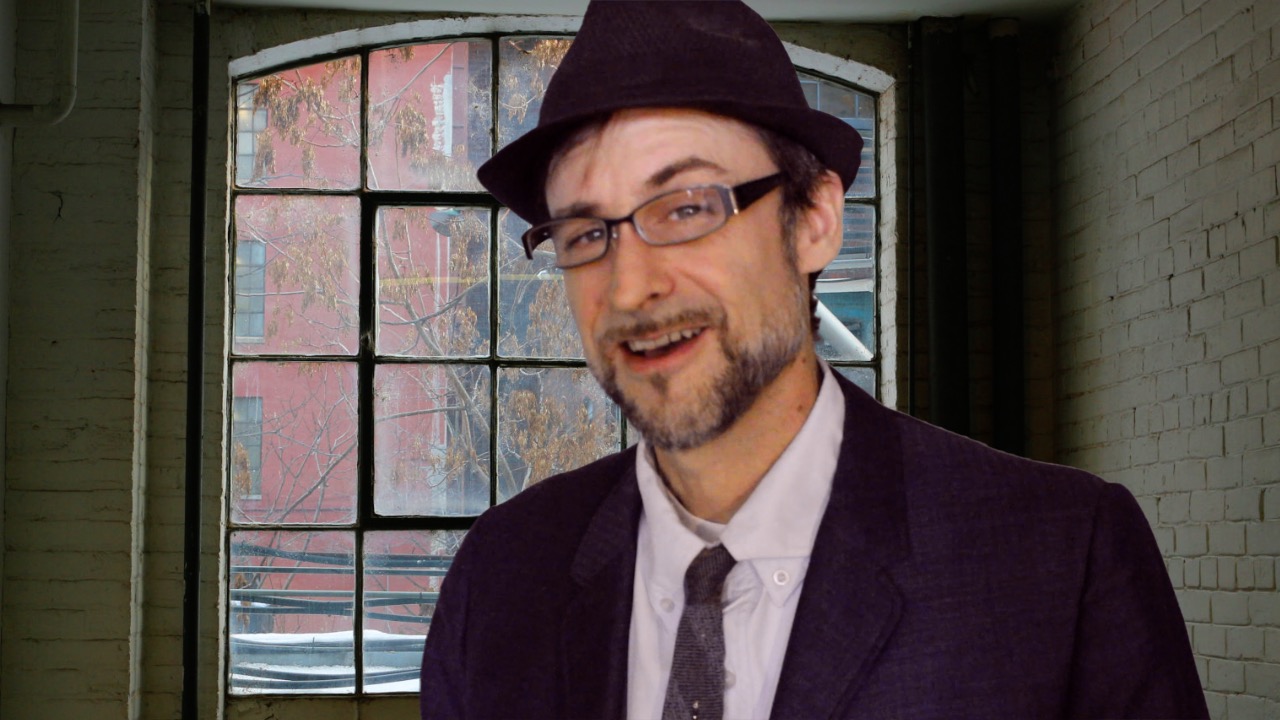While researching an article about the Black Panthers not too long ago, I came across their splendid and still powerful ten points and added them as a footnote to the story. For today’s show I found this. In 1851, Pierre Joseph Proudhon, the first man ever to call himself an anarchist, gave us the powerful explanation I quote below. Not only strong passionate stuff, but altogether too modern and familiar. Interestingly, he’s also putting his finger on the exact thing that people on the left and right most fear about each other taking control of government. Pestilential invasive incompetent and uncomprehending interference. So very 21st century!
“To be GOVERNED is to be watched, inspected, spied upon, directed, law-driven, numbered, regulated, enrolled, indoctrinated, preached at, controlled, checked, estimated, valued, censured, commanded, by creatures who have neither the right nor the wisdom nor the virtue to do so. To be GOVERNED is to be at every operation, at every transaction noted, registered, counted, taxed, stamped, measured, numbered, assessed, licensed, authorized, admonished, prevented, forbidden, reformed, corrected, punished. It is, under pretext of public utility, and in the name of the general interest, to be place[d] under contribution, drilled, fleeced, exploited, monopolized, extorted from, squeezed, hoaxed, robbed; then, at the slightest resistance, the first word of complaint, to be repressed, fined, vilified, harassed, hunted down, abused, clubbed, disarmed, bound, choked, imprisoned, judged, condemned, shot, deported, sacrificed, sold, betrayed; and to crown all, mocked, ridiculed, derided, outraged, dishonoured. That is government; that is its justice; that is its morality.”
I was also thinking about making some points about “Going nuclear” (to the most extreme position available within your range of argument), being the immature egotistical and impractical opposite of advancing responsible freely negotiated compromises between all legitimately interested (and no fundamentally corrupting) parties. But I’m pretty sure I covered that stuff by bank-shot implication, and I’m trying to keep these programs from running on. Just figured I should mention it, in case you wondered – why didn’t he think of…?
Sisyphus, for those who haven’t got into it lately, is the greek guy (prince of Corinth) who got into trouble for telling some of Zeus’ secrets, and was condemned to push a boulder up a mountain every single day, only to have the thing roll all the way down again, every time it got close to the top.
Like so many enduring stories from ancient times, it’s rather dramatic – but the intensity with which he represents a quality of endless futility we still recognize all too well in modern times is striking. There are some minority but still ancient sources who also think he was the father of Odysseus (rather then Laertes, as most texts assert), and may even have sired him after smooth-talking his way out of hades. Wild! But then, you know what greek mythology is like, right? Let no god-dude go unpunished.
The Spanish Civil war is another subject I come back to repeatedly – there are so many lessons we still haven’t learned, and questions we still haven’t adequately answered. For those who haven’t read about it – it was a chance for the western democracies to oppose fascism while it was still weak, in favour of democracy itself. But the party which had been elected was leftist, and the powerful in the west were in sympathy with the fascists, who flew-in an exiled rebel general and then lead a coup against the democratically elected socialists. Many frightening horrors of the second world war happened first in Spain – and the fact that the western powers did not officially intervene to protect democracy from fascism was positively inspirational to Hitler.
The weird thing is that in the midst of the chaos of war, an incredibly idealistic project was tried. Managers with fascist sympathies had been driven out from a large region, and the workers took over city services, organization of factories and distribution and soon had the entire structure of modern life set up on a voluntary basis. Workers voting with other workers on how their work should be.
Strangest and most perishable of examples, perhaps – but then, this is not an experiment easily tried!
¯\_(ツ)_/¯










I have the sense that previous generations may have had a more “inward” focus, although it was never strictly speaking only that. They prioritized group cohesion and the reassurance it provides. The “company man” could think only of doing his job and feeding his family. Today we glean the absurdity underlying that reassurance – the self-deception of each mind requiring the others to uphold the role-mythology, greatly simplifying expectations. The paradox of today’s world is that we are “global”, but also more atomized. Our inwardness is that of the schizophrenic or autistic, trying to process the ephemeral, fleeting imagery of pseudo-reality streaming before his eyes. In despair, we end up demanding cohesion, and homogeneity, ultimately failing to see the full common humanity of even those with divergent values.
You seem to be showing the paradox of modernity’s attempt to “institutionalize the individual”. But we do this not by putting individuals inside institutions, but by building institutions capable of adapting, recognizing our contributions (good and bad), remembering and reflecting our best selves, our highest potential(s). After all, what is the point if we don’t cultivate robust forms of collective recognition and achievement? You make this point, while raising the spectre of corrupting influences of power (if not our own, then those we bargained with to achieve a share of it, and must continue to).
One manifestation of that is the zombie state, the imperialist monster. Back in the early post-9/11 days, I was struck by the large degree of overlap between the concepts of “terrorism” and “government”, and the frequent moral equivalence of each side’s actions. The cognitive dissonance inherent in supporting arbitrary violence escapes people – kind of like how you can support the “war on drugs” and be tanked to the gills on legal meds. You lose perspective, and the ability to justify anything. And as you point out, the media is often ground zero for reproducing assumptions and contextualizing tragic events as they occur, shaping public opinion.
The desire to abolish the state rests on a misunderstanding about the real value of bureaucracy to humanity. No one sane wants to perpetuate violence – and bureaucracy can be violent; but it’s also integral to our civilization. Wanting to abolish it is sheer luddism, and as such it appeals to populist sentiments on many levels: class resentment, anti-cosmopolitanism, anti-intellectualism, even racism, sexism and general xenophobia. Instead, we should have a deeper discussion about what “our civilization” really is, and what we want it to be. The thesis of David Graeber’s book “Bullshit Jobs: A Theory” comes to mind. He examines our era’s preponderance of jobs that seem to produce little or no social value. Since we are now in the midst of a huge reassessment of our economy (largely thanks to the pandemic and ensuing shutdowns, recessions, and Zoom meetings), now is the time to center this issue and dream big – to create institutions and livelihoods that are actually just and sustainable, and to do so at a massive scale.
Among the many things the recent pandemic has brought into public parlance is the title of “essential worker”. I have a good intuitive grasp of what that means, and I’m in favour of transitioning to a much more essentials-based economy, as soon as humanely possible. But I also understand that on some level, all jobs are essential to the people doing them.
The word “coercion” is thrown around a lot by anarchists. It serves the highly convenient function of disregarding the problematic aspects of the idea of a social contract, while preserving the nice, reassuring aspects of it. Universal basic income has become common parlance, a movement led most prominently by Andrew Yang. But wage work is not inherently bad, nor is social assistance per se – they’re just terrible in the particular manifestations we’ve often seen. And of course, UBI would be the mother of all social assistance programs – good reason to maintain skepticism. The real difference between just and unjust “coercion” (in the sense of a working government / administrative hierarchy) is the degree to which it moves people toward real empowerment. Training opportunities for green jobs, that kind of thing. The idea that tearing down things we dislike would necessarily alleviate unjust coercion, rather than introduce it in new forms, is naïve and irresponsible. (See: defund / abolish the police / prisons.) But I understand the need to emphasize urgency over planning – after all, we hardly discuss anything anymore.
You mention vigilantism as a possible misconstrual of an ethical anarchism. Sadly, that word captures so much of young peoples’ approach to the world today. Despair about the sociopathic capitalism that has become the norm. Also a reflection or byproduct of it.
The personal is political. Unfortunately, many have concluded that this means they should behave like the worst politicians in their day-to-day lives. But no matter how much we support this or that party or candidate, should such figures ever serve as role models – for people of any age? And if not, is this because government is irredeemably corrupt?
Mostly, who cares?
Despite the potential dangers of the “tribalism” you lament, I’m rather glad when I see people getting more enthusiastic about electoral party politics – even though there are inevitably ebbs and flows of optimism and cynicism. I am always on the side of reasoned optimism. As I often point out (because I think many still aren’t aware), a large percentage of Biden voters / Democrats were and are very cognizant of the flaws of their candidate. And truthfully, “their candidate” was Bernie. There’s also a large percentage on the fence, who don’t know what to do with their new perspective in an era of upheaval, who may have supported Bernie the independent and are now being asked to settle for Biden the Boring.
The fact that we have so many on our side willing and able to keep a watchful eye on these leaders is exactly how democracy should work. Vigilance, rather than vigilantism. So we can focus on that essential question of essential work – making the case for more meaningful jobs for everyone.
Hi Ian
Wow – Beautiful points throughout – and at Four AM no less! What I really wanted to do here was run all the way through the youthful idealist version (which I still remember fondly), to show the hard limits we encounter at the outer edges, and also the kind of tools we ought to be working to provide one another so as to raise our common potential to do better in future (a place where progressive socialists and anarchists have historically cooperated on an incredible diversity and wealth of lastingly socially beneficial work).
So many modern speakers only seem to go half-way and then get insulting, or in some other way skip to the negative conclusion part, without giving full voice first, to the (very understandable, albeit naive) aspirations. But that never made me feel any better (smart-asses don’t like being patronized) so I figured I’d try to answer young me, as best I could. ;o)
Your point about the social contract could not be more important. On a spiritual level, I think the direct equivalent recognition is the incorporation of gratitude (and now I’m full circle back to the imbalance of intersectionality, come to think of it). Without gratitude, we don’t even enjoy the good stuff we do have as much as we could – and with it, we not only get more pleasure in life, but also find more ways to expand our capacities over time. I don’t mean gratitude only, but always somewhere in whatever mix we’re working. Of course any individual can select an appealing theory and then use it to be angry only and always instead if we want – but this isn’t withholding from the world, this is self-amputation (for no sound medical, psychological, spiritual, motivational, or rational reason, to be sure). You don’t get the pain filled years back.
Just as my feelings about the Soviet Union changed forever when I made good friends (and had great conversations with) people who had grown up inside that system, so my feeling about government has changed a lot from talking to people who experienced breakdown during war, and those from places which lacked effective central government altogether. Gratitude for what does work about this system is crucial – and attention to what is unjust about it here – and also who we are hurting elsewhere – and how our present habits constitute a grand suicide contract. No subset of these ideas will cut it, we must do it all, if we want to claim the most crucial intersection of compassion and reason.
I suppose in a way the indulgent stupidities of both the left and right can be seen as panic – the paradigm shit is so clearly upon us, and no one has any idea what will stabilize as our new consensus normal. I for one am heartbroken that the left has given up talking about meaning and quality of life, and now breaks everything down to dollars. This is a capitulation to capitalism I never expected to see (one of those tainted argument positions that means you’ve already lost).
You’re right – we do have some new hope thanks to this huge shared weirdness experience, though my guess is that the next year or two (post pan) will be filled with people trying to get back to the old normal with all their might (and taking a long time to accept it just ain’t there no more). Plenty of new ideas are incubating widely – and I think many are sick of the catharses-as-solutions so many have made an industry of offering. Fingers crossed we go high-road at the next jump!
Coercion is indeed an overused concept – but also a real problem for government. There are many more who like to use every tool offered, than those who restrain themselves, so as to be sure to leave space for others who disagree. I wish we could separate the economics and the culture side more practically. Teach more diverse curricula, but fund all the schools lavishly. Get our American friends proper universal health care – single biggest dignity boost a culture can have. But stop pretending that there is any one story of explanation to which all must pledge allegiance – wrong means!
Cheers man – hugs and love – and thank you again for your thoughtful (and superbly on point) feedback. Now I have to sign off and watch the live dystopian action on TV – clearly the news is being directed by Roland Emmerich today. Yikes!
¯\_(ツ)_/¯
Posting at 4 a.m. again, it turns out. I blame the lockdown.
Your point about going only half-way before getting insulting reminded me of something I just read: cynicism has become a proxy for intelligence. Almost like an opposite form of virtue signaling, wherein you signal the “rational” irrelevance of virtue. Amorality signaling. The cynic of today is not merely a “disenchanted idealist” as cynics are often said to be; they are motivated to petulantly destroy their inheritance. We all have an inheritance of great value, and great diversity. We must somehow foster conditions in which they can flourish, without any one (or set of them) drowning others out. If leftists embraced the “snowflake” attribution, and universalized it rather than denied it, it would be a step in the right direction. This is where I get to make that always rhetorically endearing refusal to insult anyone’s intelligence.
What you say about self-amputation reminds me of some passages in Nietzsche where he talks about asceticism, and makes me think of the blurry line between outrage (as a necessity, or duty, to live with justice and dignity – to repudiate the shallowness of conventional life) and gratitude (which the hypervigilant mind sees as a capitulation or sign of complacency).
But we must distinguish between real concepts and merely rhetorical ones. And we can only do that by conversation. This is your point – that the only honest politics must have a holistic view of life, as including both a personal and an interpersonal dimension. Why bother at all with a politics that mechanizes life? That says the individual is not special, unless and until they achieve power for its own sake? Modernity has seen the mechanization of life, and a consequent discouragement or eschewal of politics so conceived. (I earlier used the word “atomization”.) Political change alone (at the establishment level) cannot rectify this, but it is certainly part of it. But alternatives proposed must make a more compelling case for their liberatory potential. The best reminder that, even with all things considered, Biden’s election was both tragic and hopeful. (And this is indeed why we get so hung-up on “how are we going to pay for it?”)
It behooves us to always leave room for doubt and still act, still be engaged and communicate. Doubt is part of our liberation. The notion that it is hegemonic, counter-revolutionary, or indicative of a lack of commitment (or commitment to something else – privilege), is just plain… doubtful. Especially when we see, with alarming regularity, the very immature, petulant sloganeering of those issuing the purity tests. None of that should ever diminish the outrage at injustice – “imperialist” or “domestic”, that you rightly identify as the major motivator of genuine anarchists. But there is a difference between the macro and the micro.
Regarding education, I agree we must prioritize compassion rather than competition. But this will require a large-scale reimagining of our economies’ means of production. We can’t claim to have one set of values and continually channel people into destinies that are ultimately determined by faceless market forces. That is beyond merely “uninspiring but something you can shrug off” anymore – it’s fundamentally dysfunctional. But that’s what we’ve been doing, unabated. Instead of empowering young people, we’ve been enslaving them. Then we get them to fight over the increasingly meagre compensations. Identity politics purports to present a return to authenticity and solidarity, that people think will empower them to rise above this – but as often as not, it is an ingredient in this conflict, and gives rise to false consciousness. Young people need more.
The saddest thing about history is that humans have often enslaved themselves. Sometimes when we aspire to higher things as individuals (the will to power), we see things in competitive terms, and see others as obstacles to fulfillment. The justifiable moralism that says we should consider our group connectedness, our interpersonal existence, becomes perverted as a mere means to the end of individual gratification. This has been said of culture itself, i.e. that it is regulative / sublimative of “purely individual” motives. Probably why consensus is so elusive, and why we often appear to serve the economy, instead of having it serve us. Or for that matter, why many decide that they are redundant and obsolete, committing themselves wholesale to tearing it down.
I like what you say about gratitude adding to the richness of life rather than being a sort of dull restraint or patience. Being fully grateful for gratitude. Framing gratitude this way enables us to examine ways of adjusting our society’s conventions, expectations and vocabularies. Each macro level interaction having connection to the whole, as each moment does to the whole lifespan. The more people try to mono-crop the universe of ideas for short-term gains in consensus / obedience / “consent”, the more that universe’s biodiversity suffers.
The overcoming of that self-amputation, as you call it (which is really a stumbling upon the self, followed by an attempted amputation of it from society), is gratitude, a state of flow and connection. A state beyond words – the only “state” the anarchist tries to establish. Insofar as what you call “indulgent stupidities” are a form of rhetorical self-hypnosis, mindfulness seems to be in short supply, and mindlessness widely shared and celebrated. And the absolutely insidious obsession with dollars-and-cents accounting is unquestioningly swallowed – by everyone, as we have internalized the anxieties of disaster capitalism. Somehow, we can’t find the economic means to transition to a sustainable economy, but we can always find the money to finance the most deathly destructive industries. This applies equally to the micro level, i.e. the place of money in our lives and worldviews.
And it seems you’re bang-on that there exists a certain unhealthy pragmatism (in the yucky, business-political sense rather than the dignified philosophical tradition), not only in politics but coursing through the DNA of North American society. This brings up the motivational problem, that the more we set aside structure (as merely optional rather than compelling), we seem to have less power and hence less (provably actual, and therefore socially factual) options. The liberation achieved by such an eschewal can seem insubstantial. And given the dizzyingly complex structures of today’s world – maybe uninspiring.
I would conclude by saying that it all must start with communication, and that means knowing your audience. And that means letting your audience know you. Let them decide whether you’re a liberator or a charlatan. Don’t insult their intelligence. As your point about ad absurdum reminds us – sometimes listening can accomplish the goals of persuasion better than any amount of rhetoric.
Thank you, Ian – beautifully put and multiple fine ideas. I have a friend who has been a radio DJ since 1987, and he taught me “Never talk down to your audience. Talk to up the level that you think really needs to be addressed, and that way you give a good audience something nice to meet around, and bring others along into.”
*reductio ad absurdam, that is.